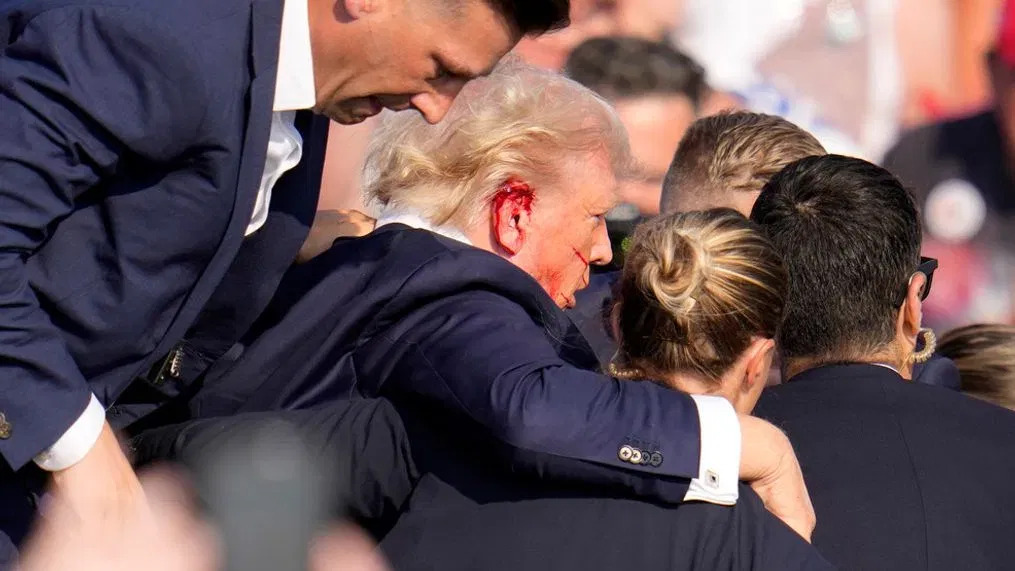Top officials at the U.S. Secret Service repeatedly denied requests for additional security resources and personnel sought by Donald Trump’s security detail in the two years leading up to his attempted assassination at a rally in Pennsylvania on July 13, according to multiple sources familiar with the matter.
Agents responsible for protecting the former president requested various enhancements to security measures, including magnetometers to screen attendees at large public gatherings, additional snipers, and specialty teams for outdoor events. These requests, often made in writing, were reportedly denied by senior officials at the Secret Service. Reasons cited included a lack of resources and staffing shortages within the agency.
These denials have led to heightened tensions between Trump, his top aides, and Secret Service leadership. Trump’s advisers had privately expressed concerns that the Secret Service was not providing adequate protection. The Secret Service, initially denying these claims, has since acknowledged that some requests may have been rejected. This acknowledgment comes amid scrutiny over the agency’s handling of security at the recent rally where a gunman fired from a rooftop, injuring Trump and killing a man in the crowd.
According to sources, Trump’s security team had repeatedly asked for enhanced security measures, including more countersnipers and magnetometers, particularly at large-scale events. These requests were sometimes turned down by the Secret Service due to what they cited as a shortage of resources and an increasing list of protectees.
The Secret Service’s response to the security needs of Trump has been complicated by the agency’s broader responsibilities, which include protecting the current president, vice president, former presidents, and other high-profile figures. With limited funding and staffing constraints, the agency has struggled to meet all demands, leading to prioritization challenges.
The weekend of the Butler shooting, the Secret Service had dispatched numerous countersniper teams and agents to other significant events, including the Republican National Convention and events involving President Joe Biden and Jill Biden. This allocation of resources further strained the agency’s ability to address Trump’s security needs.
Trump and his advisers have expressed frustration over the Secret Service’s handling of security requests. During a recent Trump rally, the former president criticized the agency’s performance, highlighting instances where requests for additional security were denied. One notable instance involved a rally in Pickens, South Carolina, in July 2023, where Trump’s team requested more countersnipers, only to have the request denied by Secret Service headquarters.
The Secret Service had previously argued that some security measures, such as magnetometers at sporting events, were deemed unnecessary because Trump would be entering secure areas. However, Trump’s team expressed concerns over his safety as he moved through open areas and interacted with the public.
The security lapse at the Pennsylvania rally has intensified calls for accountability within the Secret Service. Secret Service Director Kimberly Cheatle has faced criticism and calls for resignation over her agency’s handling of the incident. Despite initial denials that any requests for additional security were rejected, Cheatle has faced pressure from both Trump’s team and lawmakers who are questioning the agency’s preparedness and response.
The Secret Service has acknowledged the complexity of balancing its responsibilities and has committed to reviewing the specific interactions and documentation related to the security requests. The agency has reiterated its commitment to ensuring the safety of its protectees while managing a dynamic threat environment.
Conclusion
The revelations about the Secret Service’s repeated denial of security requests for Donald Trump highlight a troubling pattern of mismanagement and negligence. The agency’s failure to provide adequate protection for the former president, despite numerous requests, has resulted in a serious security breach and an attempted assassination that could have been avoided.
This situation is not just a failure of protocol but a stark example of an agency that has been overwhelmed and under-resourced for too long. The repeated denials of crucial security measures, coupled with the Secret Service’s initial denials and lack of transparency, have rightfully fueled outrage and demands for accountability.
Director Kimberly Cheatle, who has faced growing scrutiny over her leadership, must bear responsibility for these lapses. The calls for her resignation are not just about one incident but reflect a broader concern about the Secret Service’s capacity to effectively safeguard its protectees under her watch. It’s clear that a leadership change is necessary to restore confidence in the agency and ensure that such critical failures do not happen again. The Secret Service must urgently address its systemic issues, reassess its resource allocation, and commit to a higher standard of accountability to protect those it is sworn to serve.


You must be logged in to post a comment Login